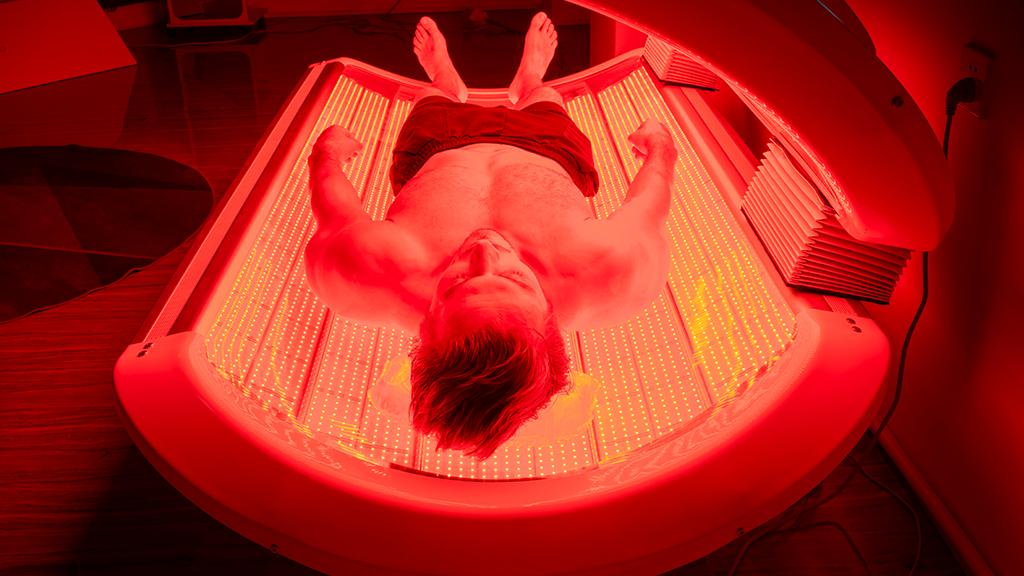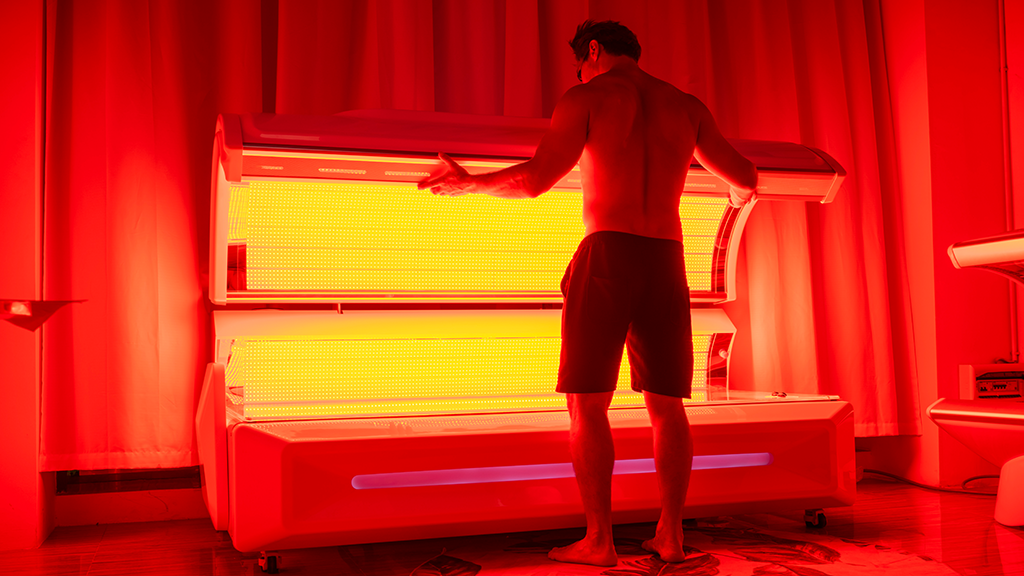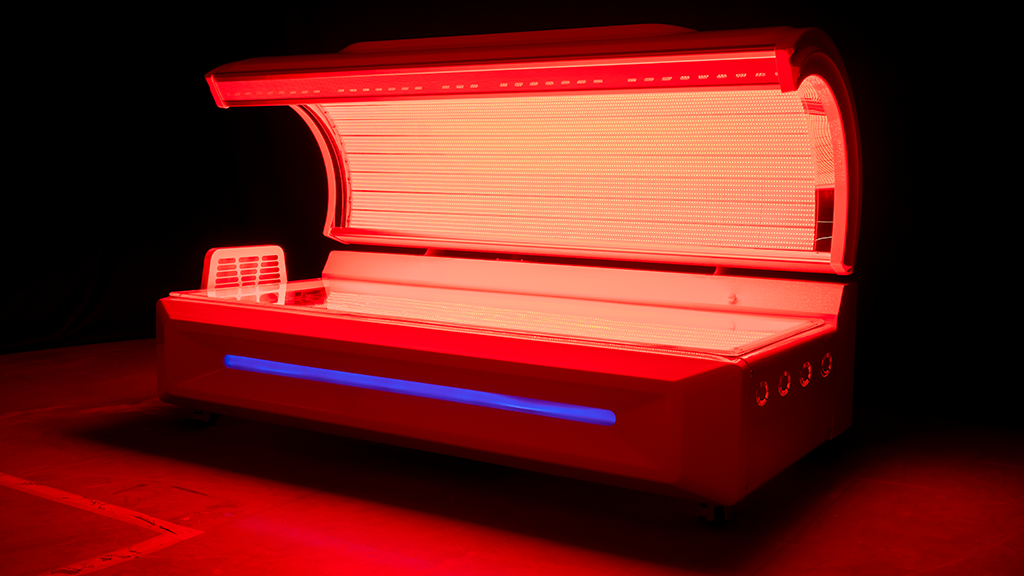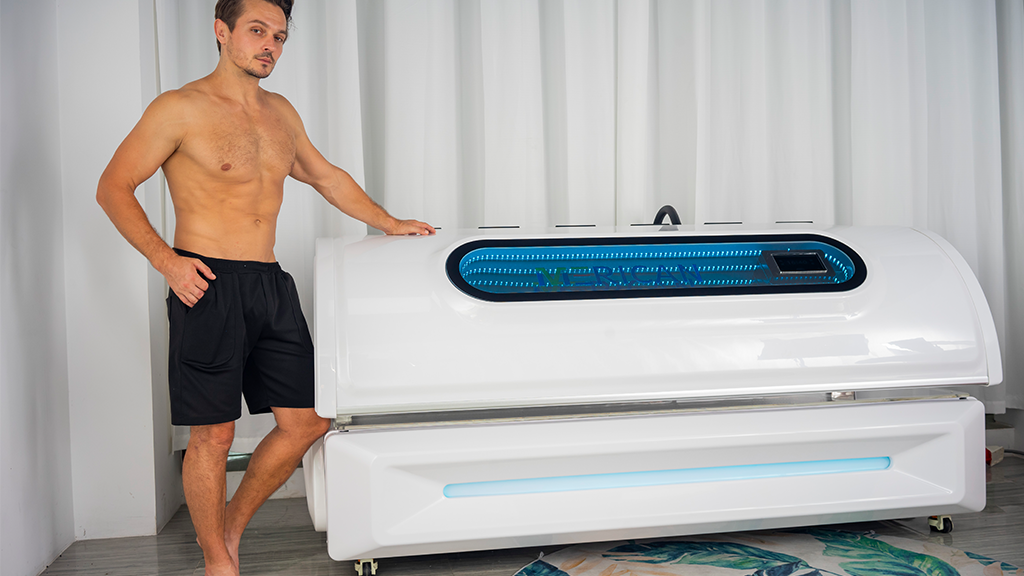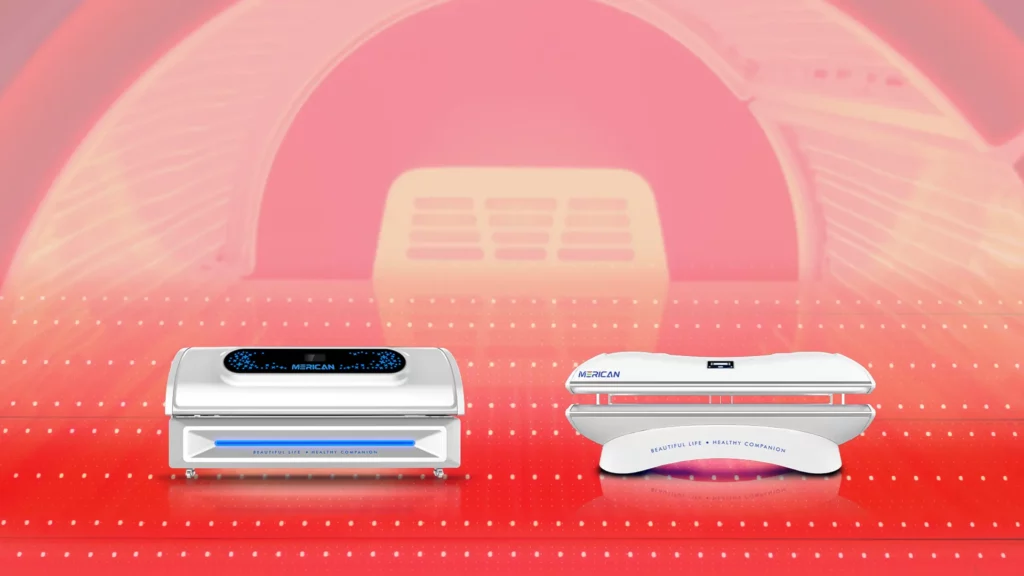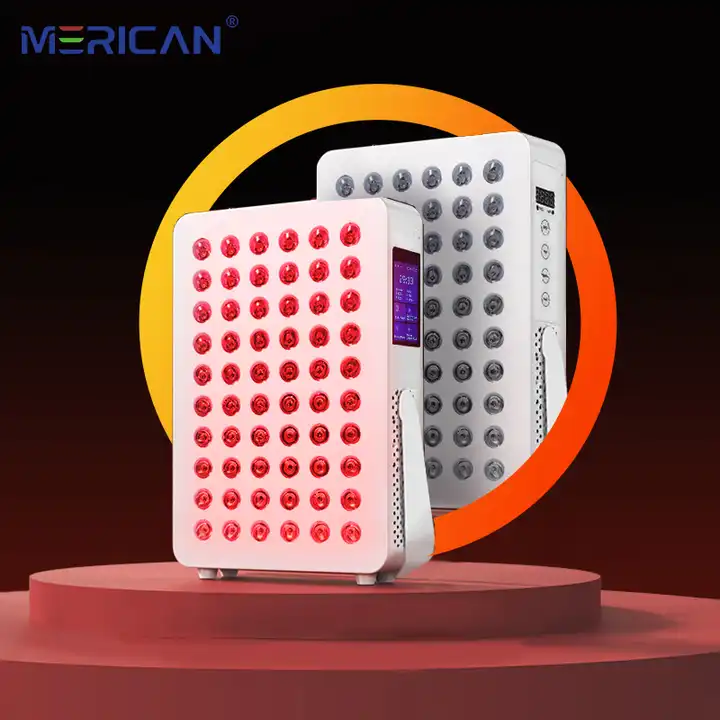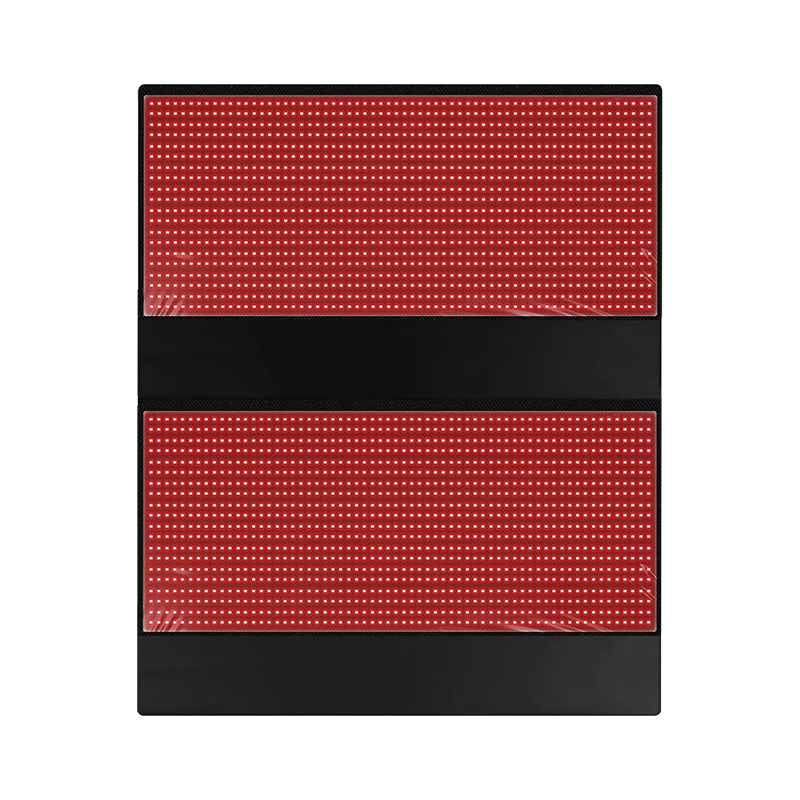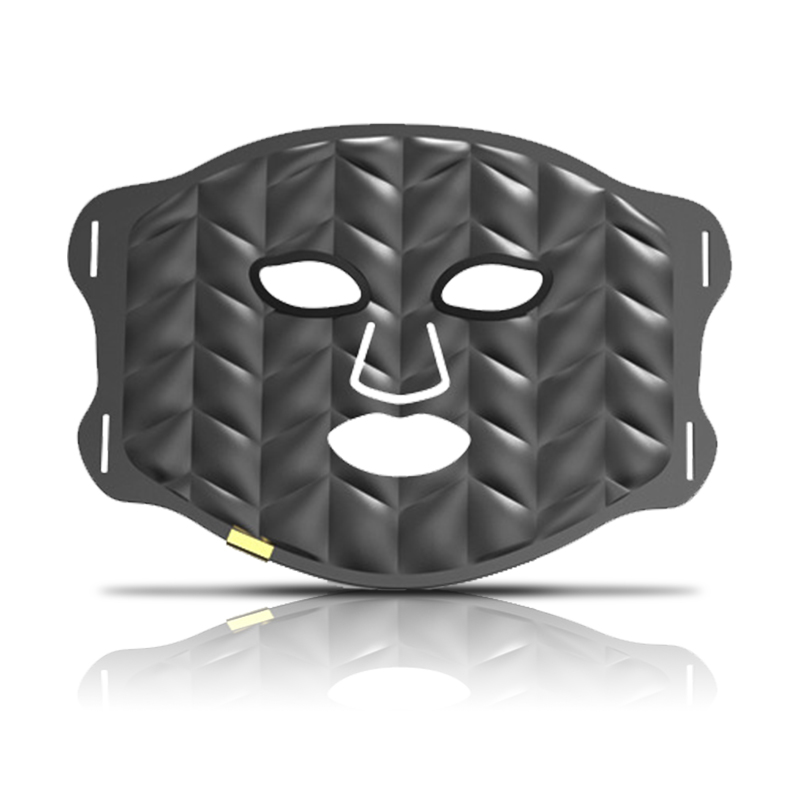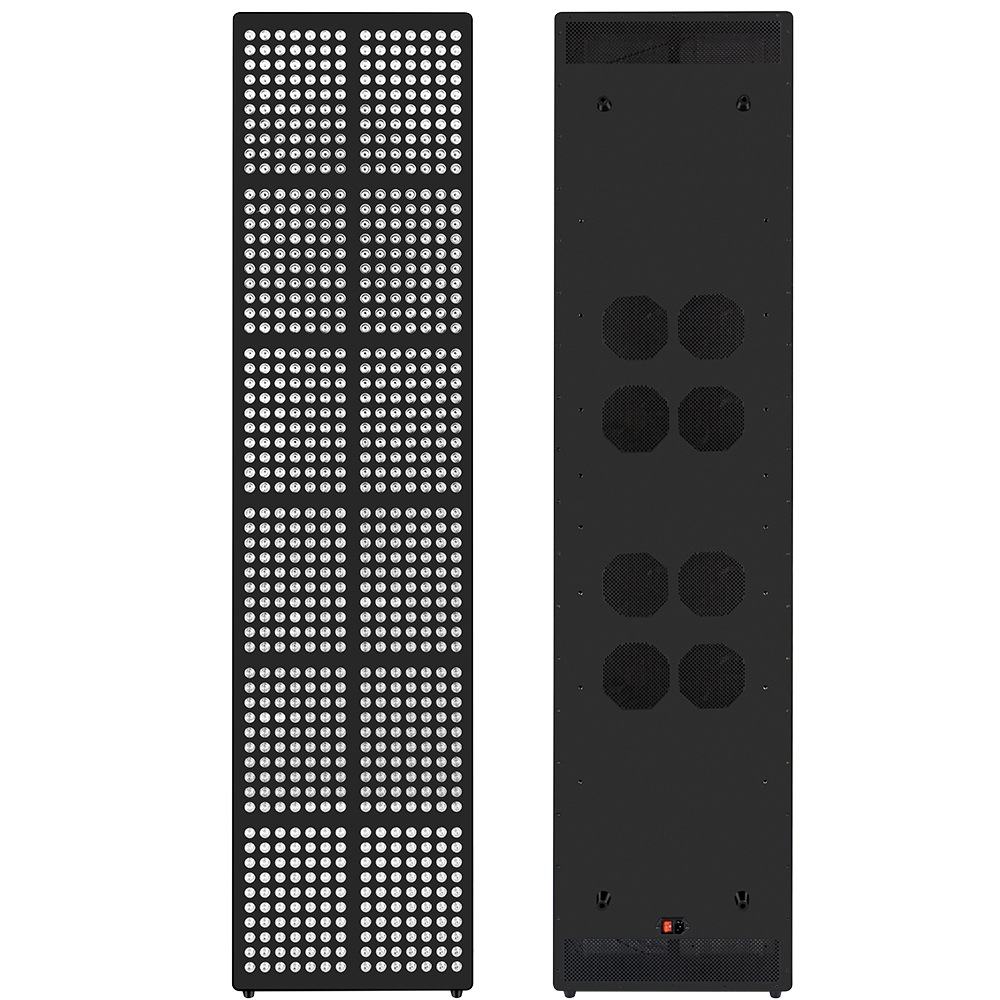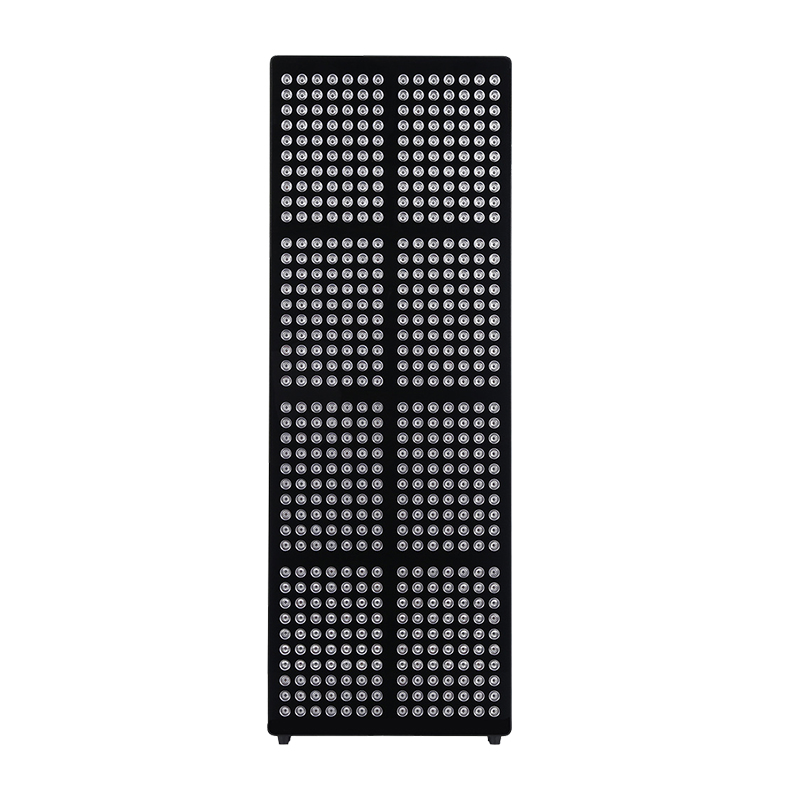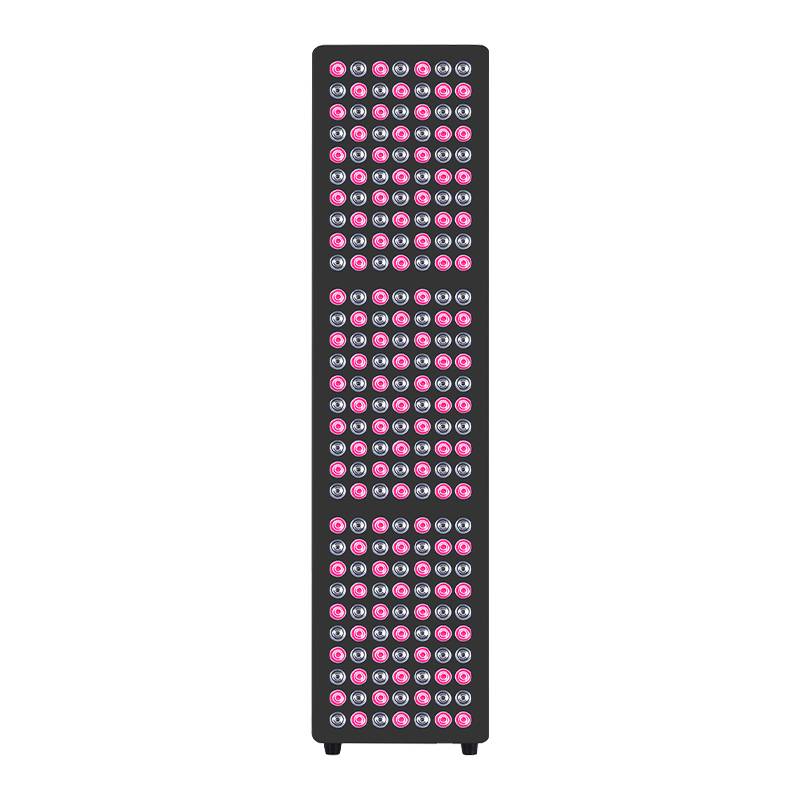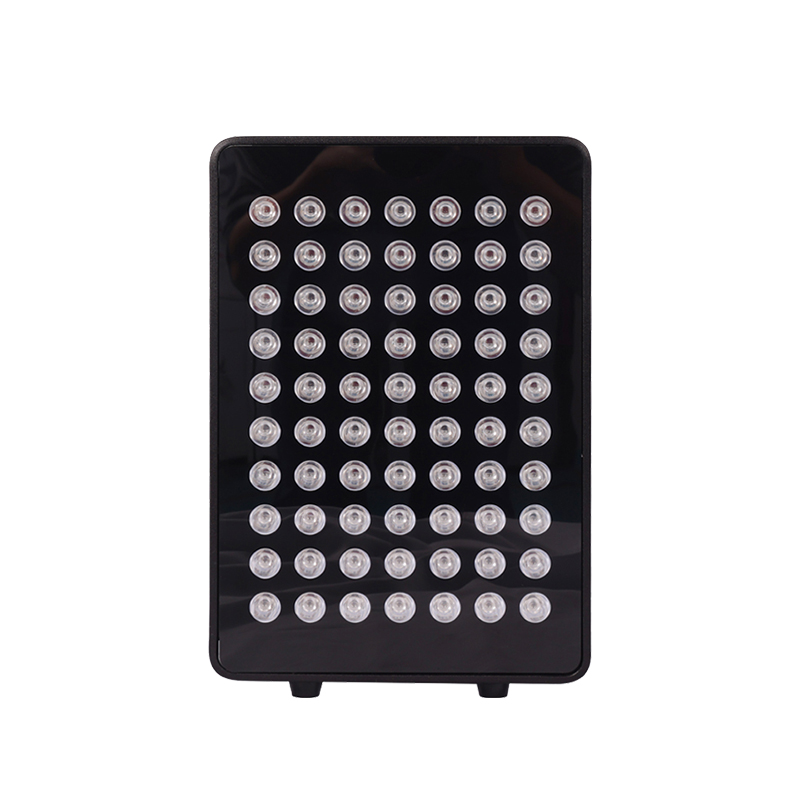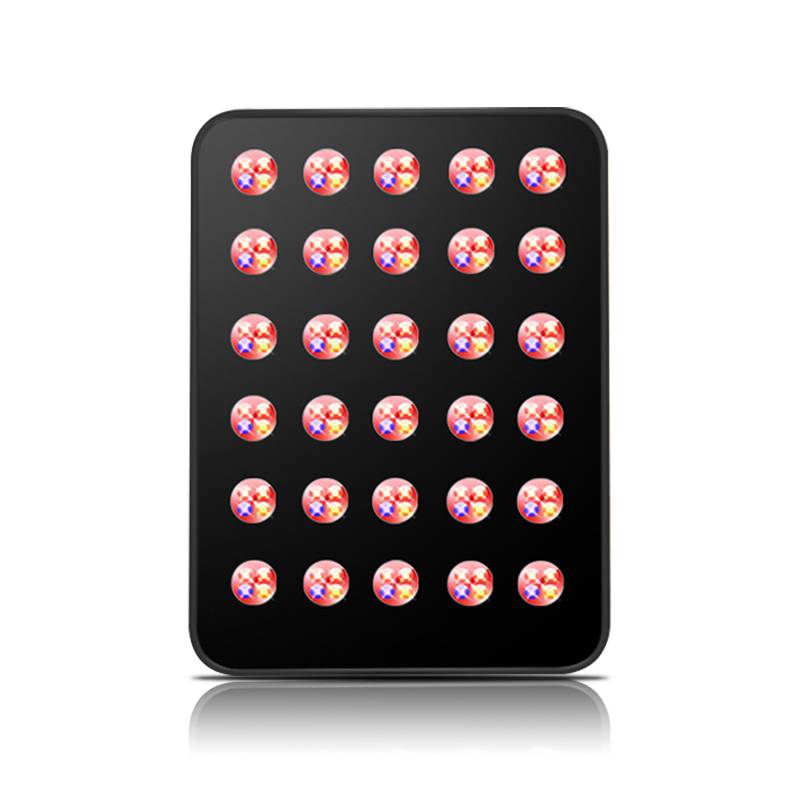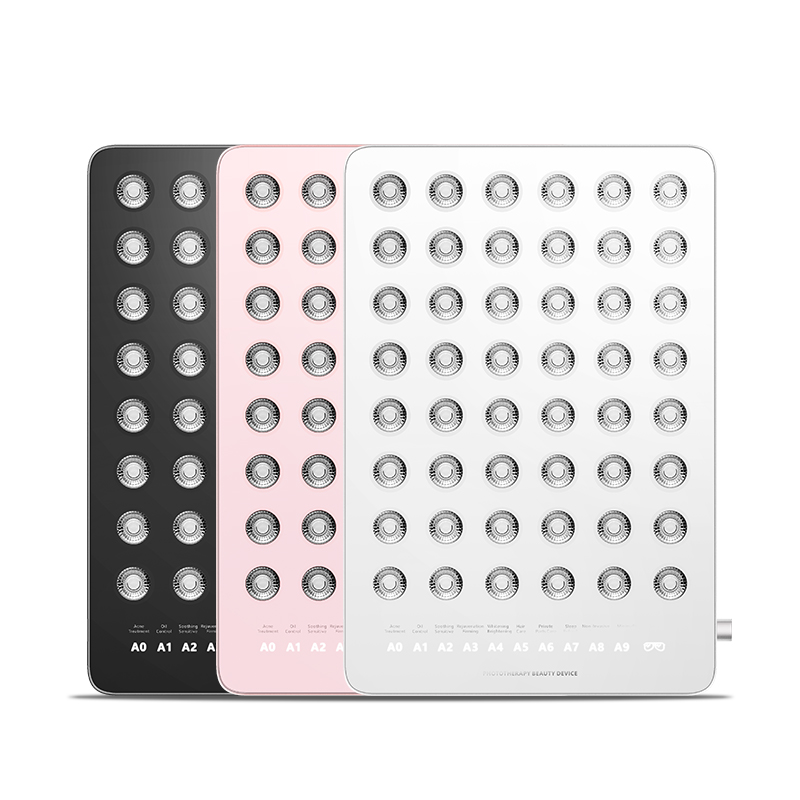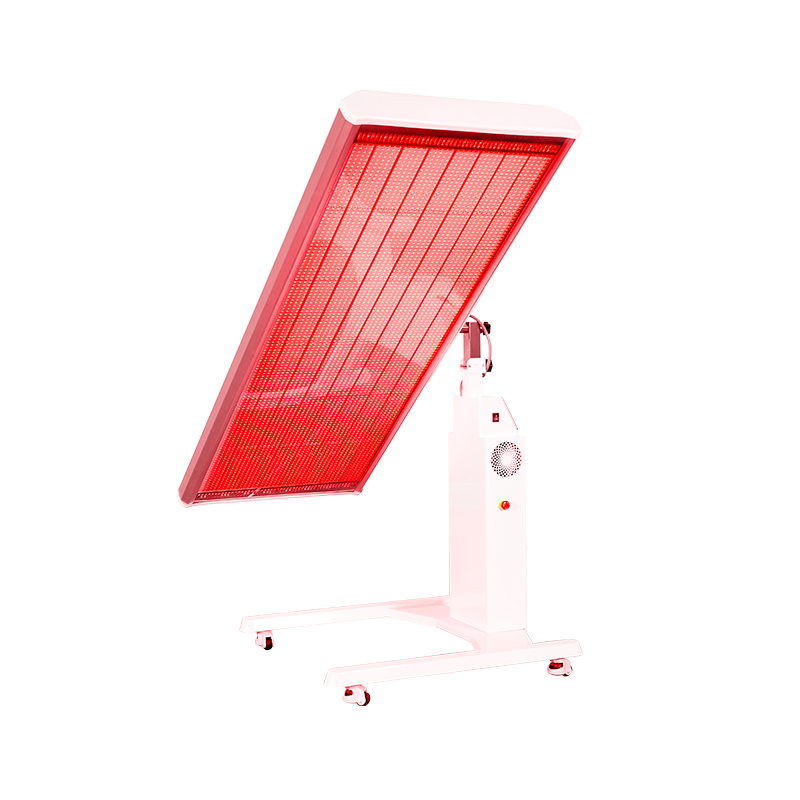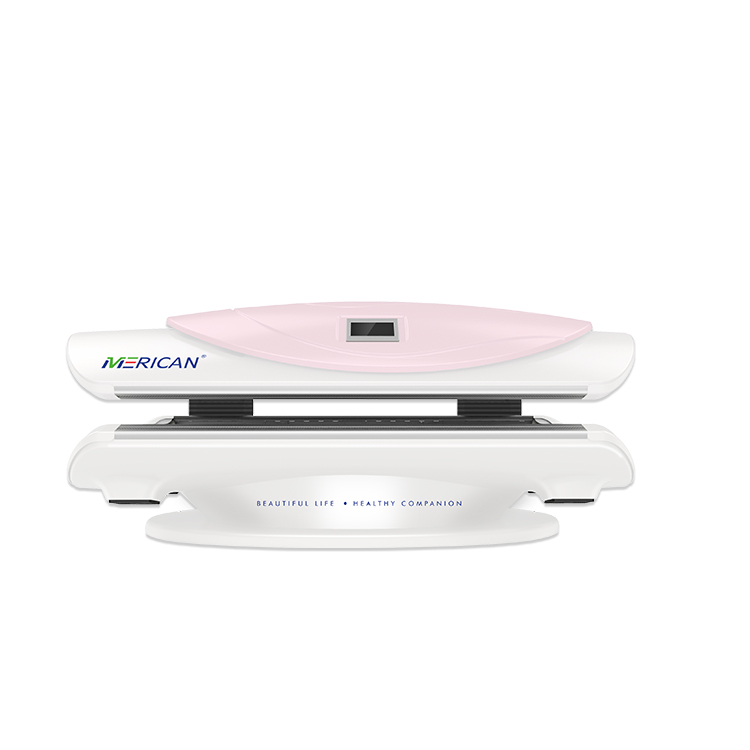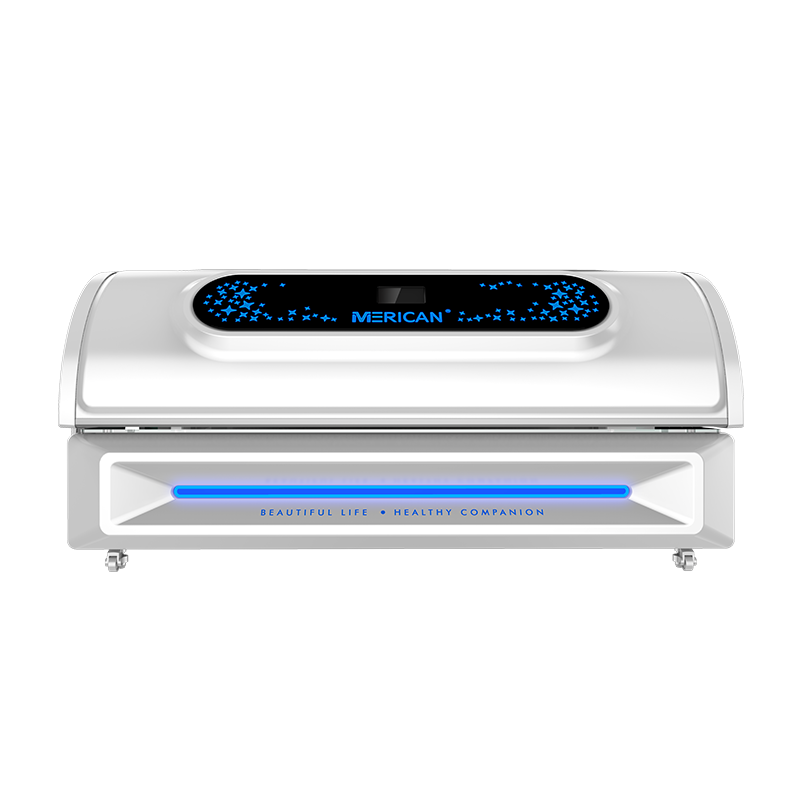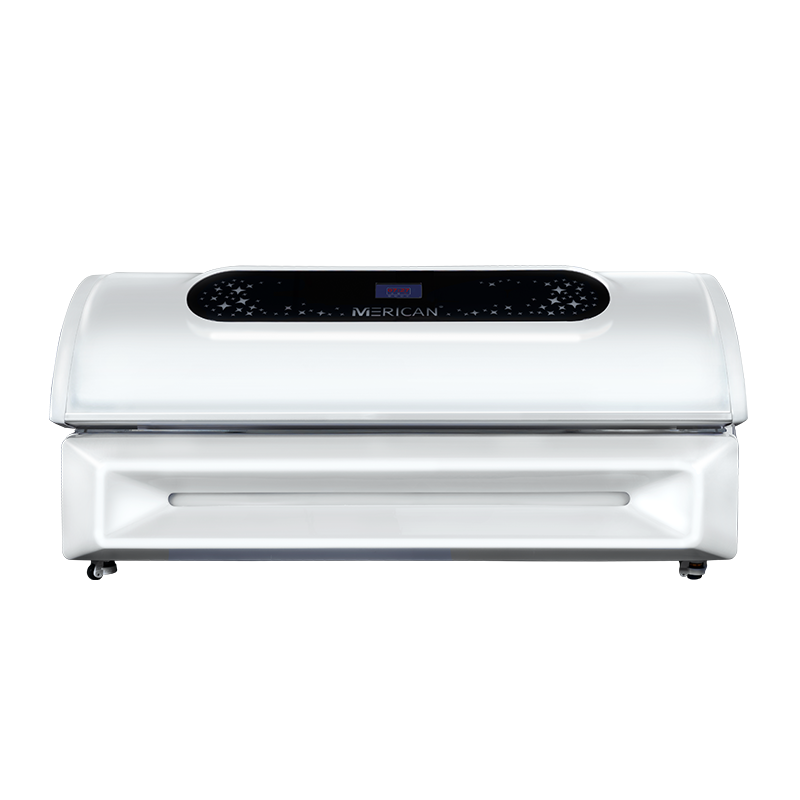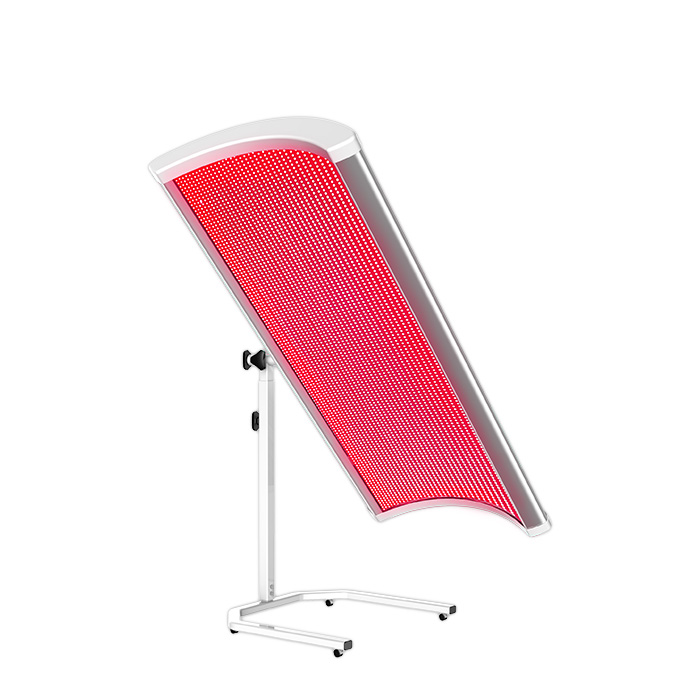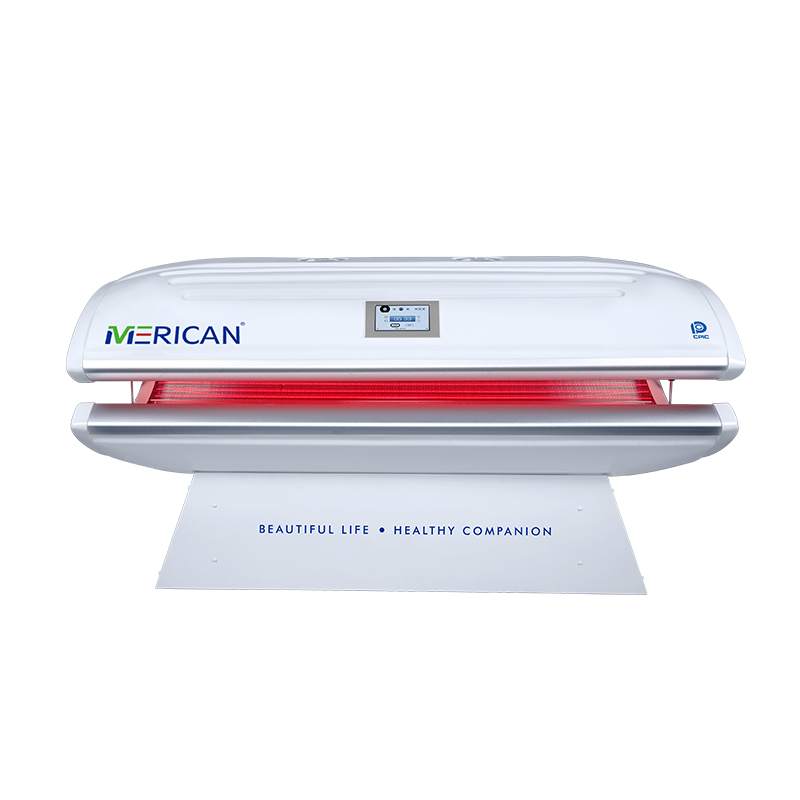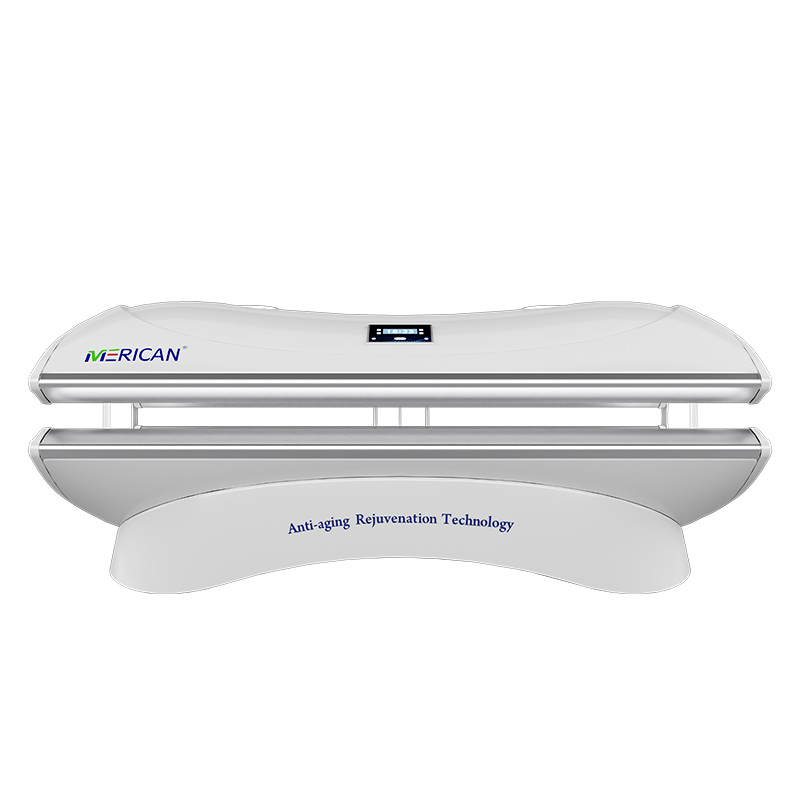Near-Infrared Light Therapy (NIR Therapy for short) is a method of treating the human body with near-infrared light (the wavelength range is usually between 700nm and 2500nm, but the commonly used ranges are 600nm to 950nm or 900nm to 1800nm). Near-infrared light therapy is a kind of light therapy, through the irradiation of near-infrared light, using its penetrating and warm effect in human tissues, to achieve the purpose of treating or improving certain diseases and symptoms.
Principles of Near Infrared Light Therapy
After irradiating the human body, near-infrared light is able to penetrate the surface layer of the skin and enter the subcutaneous tissue or even deeper tissues. Its warming effect can promote local blood circulation and increase the permeability of capillaries, thus improving tissue nutrition and metabolism. In addition, near-infrared light can also promote cell metabolism, enhance cell activity and regenerative capacity, and help tissue repair and wound healing.
What is the Difference Between Light Therapy, Red Light Therapy, and Near Infrared Therapy?
Light therapy is exposure to light that is brighter than indoor light and is used to help with cognitive abilities that may suffer due to depression, seasonal affective disorder, or sleep disorders. If you have ever heard of a “light box,” or if you have one in your home, this is a form of light therapy. Exposing people to light for 30 minutes to a few hours a day can help stimulate a change in the levels of chemicals and hormones within the body that affect mood. Our body uses light cues to time certain functions such as sleeping, waking up and so on. How we sleep, how active we are, and how we feel are regulated by our internal body clock. If ours is off, our energy levels, ability to sleep, and mood are affected! This is where light therapy can come in handy.
Light therapy is on the visible part of the light spectrum (between 400 nm to 480 nm). Though slightly different from color light therapy, light therapy can help regulate sleep patterns, improve mood, increase cognitive performance, and regulate hormones.
Red Light vs. Near Infrared Therapy
Red light therapy and near-infrared light therapy fall into a whole other light spectrum. The two are often confused as the same thing but they are really quite different. Red light falls into the visible part of the light spectrum between 630-700 nm on the electromagnetic scale and is used to treat the surface of the skin. Near-infrared wavelengths fall into the invisible part of the light spectrum between 700 and 1200 nm. So what does this mean? The longer the wavelength, the deeper the penetration to deliver energy to the cells, stimulating healing and relieving pain. Various cell and tissue types each have their own unique light absorption methods at varying wavelengths. This means certain tissues absorb certain kinds of light. For example, light vibrating at the blue wavelength is great for skin while other colors may penetrate the skin more deeply – see LEDs in Dermatology study.
The optimal NIR technology is done by LED as you are able to control the surface temperature. Also LED disperses over a larger surface area than a RED light halogen or laser. Another major difference between LED and halogen and Laser is the way light energy is delivered (optical power output – OPD). The OPD of LED Near is measured in milliwatts and laser and halogen are measured in watts. This allows LED to have a more gentler delivery as it will not damage tissue and will not have the same risk of accidental eye injury. Also LED NIR disperses over a greater surface area giving a faster treatment time.
NASA research has found that the NIR electromagnetic frequency band of energy penetrates deeply into the body and can have a healing effect on our individual cells. For example, inside the mitochondria of every cell are receptors that respond to near-infrared wavelengths. The light triggers an increase in cell metabolism, protein synthesis (including collagen), and anti-oxidant activity (meaning the cells detoxify). Additionally, it reduces inflammation and pain while simultaneously triggering growth and regeneration in the cells.
In short, light therapy affects mood, circadian rhythm, and other body processes, while Near Infrared Therapy acts as a pain reliever and cell rejuvenator – two VERY different forms of energy, but both beneficial.
Benefits of Near Infrared Therapy:
- Improve blood circulation: NIR light irradiation can dilate blood vessels, promote blood circulation, and increase blood flow, thus improving nutrition and oxygen supply to local tissues.
- Promote the dissipation of inflammation: By increasing the phagocytosis and metabolic activity of cells, NIR light helps to eliminate inflammatory mediators and swelling and promotes the dissipation and absorption of inflammation.
- Relieve pain: NIR light irradiation can reduce the excitability of nerves and decrease the transmission of pain signals, thus providing pain relief.
- Promote tissue repair: NIR light can accelerate the proliferation and differentiation of cells such as fibroblasts, endothelial cells, and keratinized cells, promoting tissue repair and wound healing.
- Anti-aging: NIR light therapy can also improve skin texture and promote collagen production, helping to reduce wrinkles and discoloration and achieve anti-aging effects.
Applications of Near Infrared Light Therapy
Near-infrared light therapy has a wide range of applications in the medical field, including but not limited to the following:
- Surgical care: for post-surgical wound healing, inflammation control, wound healing, etc.
- Burn care: for burn patients, NIR light therapy can promote the healing of burn wounds and reduce the risk of infection.
- Beauty field: for skin whitening, tightening, anti-aging, and other beauty programs.
- Pain management: For chronic pain patients, NIR light therapy can be used as a non-invasive pain management method.
To summarize, near-infrared light therapy is a method of using near-infrared light to treat the human body, which has a variety of effects, such as improving blood circulation, promoting the dissipation of inflammation, relieving pain, and promoting tissue repair. It has a wide range of application prospects in the field of medicine and cosmetology.
Next, We introduce one of our main products: Home Use Beauty Machine Full-Body Red Light Therapy Infrared Bed with 660nm & 850nm Wavelengths
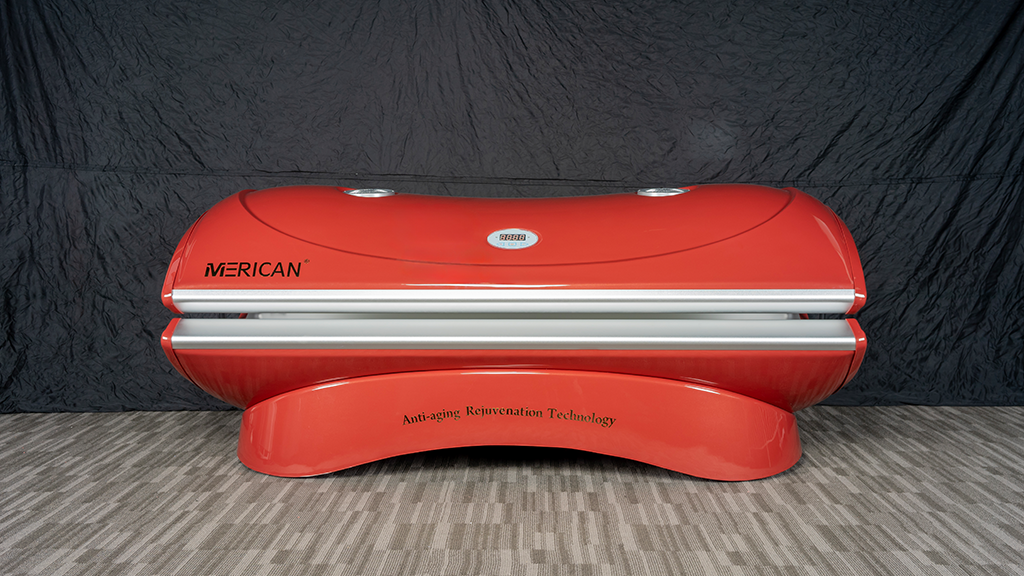
Our factory is proud to offer an innovative phototherapy bed that provides a range of health benefits through its combination of red light and near-infrared wavelengths. With each wavelength independently controlled, you can customize your treatment to suit your specific needs and preferences. Our phototherapy bed is perfect for use in salons, spas, wellness centers, and in the comfort of your own home.
Features
1. Red Light 660nm + 810nm 850nm 940nm Near-infrared Light 4 wavelength combination
2. Independent control of each wavelength
3. 1-10000Hz pulsed adjustable
4. Built-in timer, easy control
5. High-quality and affordable price
6. We offer OEM & ODM service
7. Low Mini Order Quantity, the MOQ is 1 set
8. We are a reliable factory that provides high-quality products.
If you have more product inquiries, quote now!

